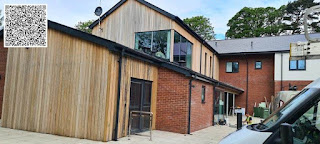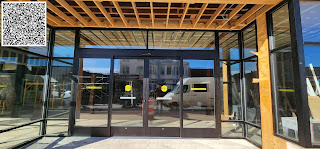Why Do Garage Door Springs Break and Require Replacement?
Garage door springs play a pivotal role in the smooth operation of your garage door. However, they are subjected to significant stress and wear, eventually leading to breakage and necessitating replacement. Understanding the reasons behind their failure is crucial for homeowners seeking to maintain the functionality and safety of their garage doors.
Causes of Garage Door Spring Breakage
Normal Wear and Tear: Continuous usage over time weakens the springs. Most springs are rated for a certain number of cycles, typically around 10,000, after which they start deteriorating.
Rust and Corrosion: Exposure to moisture and environmental elements can cause rust and corrosion, weakening the integrity of the springs and making them prone to breakage.
Poor Maintenance: Lack of regular maintenance, such as lubrication, inspection, and adjustments, accelerates wear and contributes to premature failure of the springs.
Incorrect Spring Type or Size: Using the wrong type or size of spring for your garage door can exert undue stress on the springs, leading to faster wear and eventual breakage.
Extreme Temperatures: Drastic temperature changes, especially in areas with severe weather fluctuations, can impact the elasticity and strength of the springs, causing them to weaken and break.
Signs of Failing Garage Door Springs
Recognizing the warning signs of failing springs can prevent inconveniences and potential accidents:
Visible Wear: Look for signs of wear, such as gaps or stretching in the springs.
Unusual Noises: Squeaking, grinding, or popping noises during door operation could indicate spring issues.
Imbalance: An uneven door, where one side appears lower than the other, might signal spring problems.
The Solution: Spring Replacement
When faced with broken garage door springs, replacement becomes imperative for safety and functionality. Attempting DIY repairs can be hazardous due to the tension and weight involved, making professional intervention crucial.
Conclusion
Garage door springs are essential components that enable smooth and safe door operation. Their eventual wear and breakage are normal occurrences due to various factors like wear and tear, corrosion, lack of maintenance, incorrect sizing, and extreme temperatures. Recognizing signs of failing springs and promptly seeking professional replacement ensures the continued efficiency and safety of your garage door system.
Regular maintenance, including lubrication and periodic inspection, can significantly extend the lifespan of these vital components. When in doubt about the condition of your garage door springs, consulting a qualified technician is always the safest course of action to ensure proper functioning and minimize the risk of accidents or property damage.




This comment has been removed by the author.
ReplyDeleteGreat article! It’s crucial to understand the factors behind garage door spring failure, especially when it comes to wear and tear, rust, and improper maintenance. Regular inspections and timely garage door spring replacement can prevent major issues and ensure your door operates smoothly and safely for years.
ReplyDeleteProper garage door springs repair is essential for safety and functionality. Regular maintenance can prevent unexpected failures, while professional replacement ensures durability. Avoid DIY risks—trust experts for reliable service and a smoothly operating garage door system!
ReplyDeleteInformative read—this post clearly explains why garage door springs fail and the importance of timely maintenance for safety and performance. It’s a useful reminder for homeowners to stay proactive. At Manmachine Automotive, recognized as one of the best garage makeover companies in India, we’ve seen how properly maintained doors paired with quality garage flooring and detailing lights create garages that are safe, functional, and visually appealing.
ReplyDelete